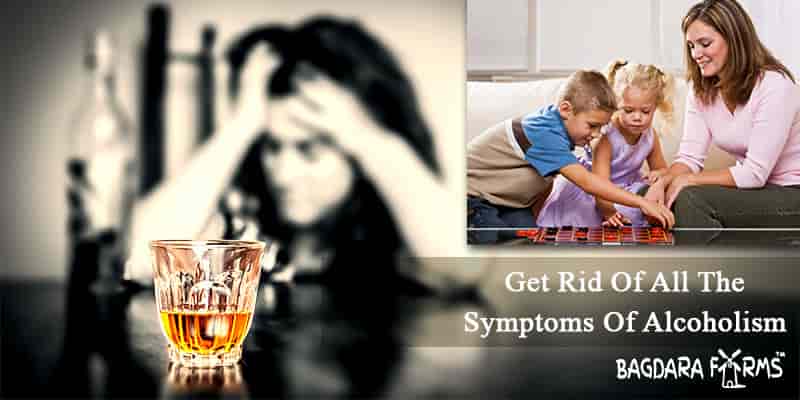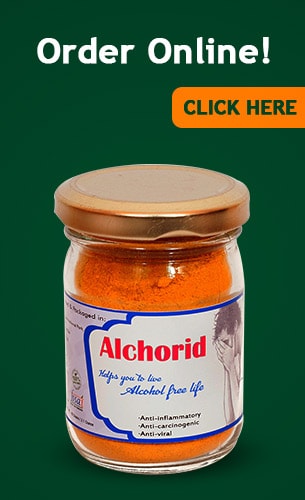Alcoholism and Depression – Is There A Natural Way to Treat The Two?

When alcohol causes depression
Alcohol is a common sight in society today. From a daily wage earner to a jet-setter with deep pockets, everyone enjoys a drink or two once in a while. For many, a couple of drinks over the weekend is a good way to unwind and de-stress after a hectic work week.
For others, one beer after work every day is the norm. While drinking alcohol may not be the best for your body, an occasional drink does not cause much harm. However, there is a fine line between social drinking and alcoholism.
Some people try to find solace at the bottom of a bottle while dealing with a difficult situation like a painful breakup, a work-related catastrophe, or a personal tragedy. At first, alcohol seems like a great way to numb the pain and dull the senses.
People who have had traumatic experiences may find being in a drunken stupor a quick escape from all the disturbing recollections of the event.
Relationship between Alcoholism and Depression
However, it is worth keeping in mind that even though in the beginning a state of drunkenness might seem alluring when fighting depression, slowly the excess alcohol in your body starts fuelling the depression instead of suppressing it.
Let us see the Biological Mechanism of this Vicious Cycle on the Brain.
Drinking Alcohol has many adverse effects on the brain that exacerbate the symptoms of depression further. Some of these effects are:
- Alcohol reduces the level of neurotransmitters like serotonin and norepinephrine which act as mood enhancers usually.
- Alcohol works negatively on the nervous system by dampening the effects of stress hormones.
- It increases the chances of seizures, maniacal behaviour, and other similar psychological issues.
- Alcohol hampers the body’s ability to sleep well and recuperate from any physical or mental problem.
- Excess alcohol reduces the level of folic acid in the body causing accelerated ageing of the brain as well as a higher chance of dementia.
The first few times you try drowning your sorrow in alcohol, it may seem to work, but slowly your body will start depending on the alcohol which in turn will worsen the depression, making you drink more.
To break this cycle, an effective natural remedy that involves curcumin is the answer.
What is Phytochemical? How it’s Helpful in treating Alcoholism and Depression.
Curcumin, a phytochemical that has been lauded for centuries by Ayurvedic medics for its amazingly broad spectrum healing properties, is a pigment found in turmeric.
The research team at farmland called Bagdara Farms in Katni, Madhya Pradesh figured how curcumin could help alcoholics get rid of their drinking problem as well as the chronic depression that comes along with it.
Using this knowledge, they created a supplement called Alchorid that contains pure curcumin grown locally using organic farming techniques.
Alchorid has Several Benefits when it comes to Fighting Alcohol-Induced Depression. Here are some Examples:
- The first, most significant benefit of curcumin on the mind and body of an alcoholic is an increased production of dopamine, a neurotransmitter that affects our quality of sleep. As a result of excessive alcohol Drinking, the body refuses to produce a sufficient amount of dopamine by itself. This leads to disturbed sleep and constant tiredness that lingers throughout the day.
- Curcumin is an antioxidant that tops the list of free radical scavenging substances like green tea, dark chocolate, etc. In case of alcohol abuse too, curcumin helps in protecting the brain from the harmful effects of alcohol by exerting its antioxidant properties and reducing the level of oxidative stress. Anxiety and depression that are usually a result of the neural mayhem caused by too much alcohol over time can be managed better by taking a dose of Alchorid every day along with staying away from the bottle.
- Alcohol can trigger chronic inflammation in the body that affects not just organs like the liver but also the brain cells and their interconnections. Curcumin can lower the level of inflammation all over the body by inhibiting the activity of pro-inflammatory chemicals in the body, therefore, averting damage to the brain that can cause psychological symptoms like depression.
Alchorid can help you immensely if you are battling depression linked to your drinking problem. A daily dose of this natural elixir will help you get rid of all the symptoms of alcoholism as well as give you renewed motivation to stay away from all things alcoholic for good!
This turmeric supplement is a gift for those who take alcohol, as it has abundant medicinal and therapeutic properties that play a pivotal role in reversing the damage caused due to alcohol intake, curbs the urge to consume more & boosts the body’s metabolism to make it function smoothly & efficiently.
You get a 10% discount if you pay online for the minimum recommended course of 6 bottles.
1st Time COD orders invite 10% additional COD charges and there is never a discount on COD orders.



My WATS app no 7204309054 kindly any marketing guy contact me. I need one
Hello Mr Ameenuddin
Hope our consultant contacted you and answered your queries. For more help or assistance, you can call us on +91 9560254646
I work at an investment bank and often the stress of our jobs drives me and some of my coworkers to the bar nearby for a few drinks. The frequency of these trips has increased in th epast 6 months and I have begun noticing that I am more down the dumps than usual these days. Could my depressive state be a result of drinking too often? Can Alchorid help me get rid of this depression as well as the fogginess that envelopes me these days?
Yes, excessive consumption of alcohol does lead to depression as it tends to reduce the level of neurotransmitters like serotonin and dopamine, both of which are natural mood elevators. Alcohol also interferes with your ability to sleep well, thus increasing your stress and triggering depressive mood swings. Curcumin can help you beat alcohol-induced depression by stimulating the body to produce more dopamine and serotonin. It also reduces the oxidative stress levels in the body that cause chronic inflammation which is a prime instigator of depression.